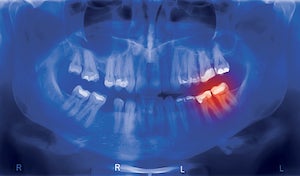lens
Care for Aging Teeth
Researchers seek best option for treating seniors
 Suchitra Nelson
Suchitra Nelson
When people past age 62 forgo regular dental visits, they risk untreated cavities and related pain—and generally higher costs for care than if they'd seen a dentist sooner.
The problem is exacerbated for low-income senior citizens who cannot find dentists who accept Medicaid, or who lack money to pay for treatment or transportation to an appointment.
Researchers from Case Western Reserve's School of Dental Medicine know that this senior population has higher rates of tooth decay and are looking for the best treatment option for them with a $4.2 million, five-year grant from the Patient-Centered Outcomes Research Institute, an independent nonprofit based in Washington, D.C.
"We want to find the most effective, efficient and patient-centered treatments" for addressing cavities in older, low-income adults, said Suchitra Nelson, PhD (GRS '84, nutrition; GRS '88, '92, epidemiology and biostatistics), professor of community dentistry and assistant dean of clinical and translational research at the dental school.
 IMAGE: ZOKARA/ISTOCK/GETTY IMAGES PLUS
IMAGE: ZOKARA/ISTOCK/GETTY IMAGES PLUSNelson's team will work with 550 participants who have cavities. The team will provide half the participants with a treatment of topical silver diamine fluoride and the other half with a dental filling that doesn't require a drill.
"If cavities are arrested, it will be a success," Nelson said. "If the patients have no dental pain [after treatment], then it's a success."
Study participants live independently in public housing. Researchers will bring dentists, hygienists and dental equipment to them.
"Hopefully, this research makes a lasting impact on better oral health outcomes," said Nelson, who has worked since 2012 on the oral-health issues of seniors, particularly those who are minorities or have limited means.





